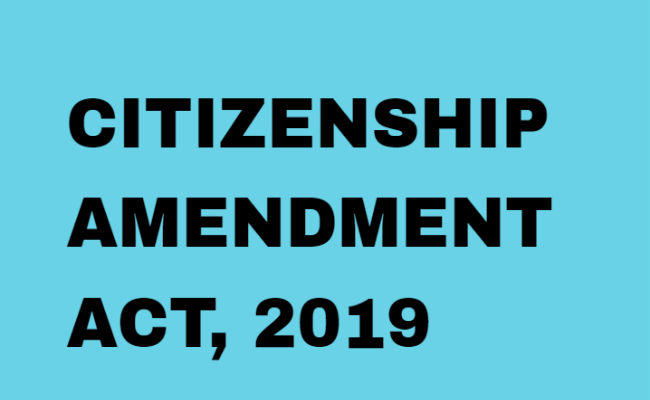There seems to be a debate once again regarding the Citizenship Amendment Act. In a meeting in West Bengal, Union Minister of State Shantanu Thakur has claimed to implement it soon. Since Lok Sabha elections are to be held soon, a group of observers feel that the Central Government is going to implement this law for polarization. They feel that the already apprehensive Muslim community will again take to the streets regarding this law and this will also mobilize the majority mind, which will definitely benefit the BJP led National Democratic Alliance. Such thinking may be correct, but the big question is whether any law passed by the Parliament should be stopped from being implemented on this basis? Certainly the answer is no. This law makes a provision for granting citizenship to Hindus, Buddhists, Jains and Sikhs who came from Afghanistan, Burma, Pakistan and Bangladesh before 2014. The Citizenship Amendment Act was originally passed in 1955. Under this, a provision was made to give civil rights to the people who came to India after partition. This law was amended for the first time in 2003 during the Vajpayee government. Despite this, if we want to see and understand the condition of Hindu, Sikh, Christian, Jain and Buddhist refugees from neighboring countries, we will have to visit the refugee camps of Bikaner, Jodhpur or Jaisalmer in Rajasthan and the camps located near Najafgarh in Delhi. . The people living in these are neither able to get educational facilities, nor are they able to get regular employment, nor are they able to get other government facilities because they are not legal citizens of India. This law came for such people. But when it was approved by the Parliament in December 2019, it started being termed as anti-Muslim. Almost the entire Muslim dominated area of the country stood against this law. It was openly supported by political forces influenced by leftist ideology. Actually, the amendment made in 2003 has become the reason for misleading the Muslims. Under this, there is talk of creating a National Citizenship Register, especially in the north-eastern states, through which efforts were to be made to identify the people who came from across the border after a specific period.
The big thing is that the Citizenship Amendment Act is fundamentally not against Indian Muslims. Its purpose is to ensure identity of people coming to India from across the border by treating it like an inn and to stop illegal immigration. Such immigrants have been proving to be a big vote bank for non-BJP parties, hence they have been supporting these immigrants while forgetting the problems of the country. This is the reason why a large part of the opposition parties also participated in the nationwide protest against this law. Many opposition ruled states had refused to implement this law. But we should not forget that the sovereignty of India is guaranteed by the Parliament and the Parliament is supreme. The question is, how can a state refuse to implement the law of the Supreme Parliament? The arguments raised in the context of criticism of this law should also be seen. Since there is no mention of Muslims in this law, it is argued that this law is discriminatory. On this basis, it is also accused of violating secularism.
One reason for criticism of this law is that if there is a single citizenship register, Muslims may be boycotted. This challenges the values of equality and non-discrimination enshrined in the Constitution. It is also alleged that after the implementation of the law, due to the complexity of the law in the National Citizenship Register, innocent people may face difficulties in proving their citizenship, resulting in unjust results. However, if India is to be saved from illegal immigration and a system based on equality is to be adopted instead of appeasement politics, then this law should be implemented at all costs. To avoid opposition to the law, the apprehensions should be resolved at the government level, but the argument that the law made by the Parliament cannot be implemented cannot be accepted. Well, the way the voices of protest are getting louder, it seems that they are trying to repeat 2019 once again. But it should be expected that in a long span of four years, every section of the society has become aware of what this law basically is and what is its basic goal? People must have understood that this law does not discriminate, but rather tries to bring the extreme minority communities, which were already suffering discrimination, into the mainstream. If this has not happened, then efforts should be made to convince people from this point of view. Perhaps this is the government’s objective also. It is possible to achieve some political goals through this process, but it has to be kept in mind that opposition also has its own politics.
(These are the personal views of the author.)

